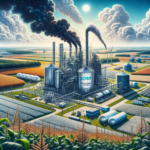It looks like the automotive world might be gearing up for its next big revolution, with hydrogen engines starting to steal the spotlight from electric vehicles (EVs). Although EVs have been leading the charge towards zero emissions, hydrogen-powered cars, with their innovative technology, are beginning to make waves.
The goal for many electric vehicle manufacturers is to dominate the automotive market by 2030. However, hydrogen engines are quickly becoming a formidable contender. What sets hydrogen cars apart is their hydrogen fuel cell technology, which emits nothing but water vapor, making them a prime candidate for the title of the most environmentally friendly vehicle.
Despite the rapid growth of the EV market in the United States, with approximately 2.5 million electric cars already on the roads by mid-2022, hydrogen cars are still a rare sight, with only about 15,000 of them, all in California.
As we look towards the future of transportation, with an emphasis on speed, quick refueling times, and green technology, hydrogen engines are emerging as a significant player. Only a few manufacturers are diving into this technology, and BMW is leading the pack.
BMW’s CEO, Oliver Zipse, has indicated that hydrogen engines are not just a temporary experiment but are expected to become a crucial part of the automotive landscape globally in the long run.
Hydrogen fuel-cell vehicles (HFCVs) work on a principle similar to that of battery-electric vehicles, but instead of relying on bulky batteries, they use a fuel cell stack. This stack takes hydrogen gas and combines it with oxygen from the air to produce water vapor and electricity, powering the vehicle. This process makes HFCVs a subset of the broader category known as fuel-cell hybrid electric vehicles (FCHEVs).
Although hydrogen is the most abundant element in the universe, obtaining it in its pure form for use in vehicles requires separating it from other elements in a process that currently relies heavily on fossil fuels like natural gas. Despite these challenges, hydrogen fuel-cell vehicles offer several advantages over their electric counterparts. They can be refueled in just a few minutes and offer a consistent range regardless of the weather, distinguishing them as a compelling option for the future of sustainable transport.
















